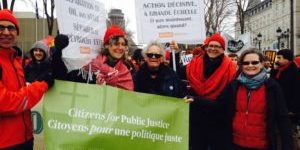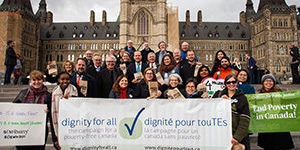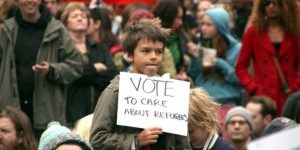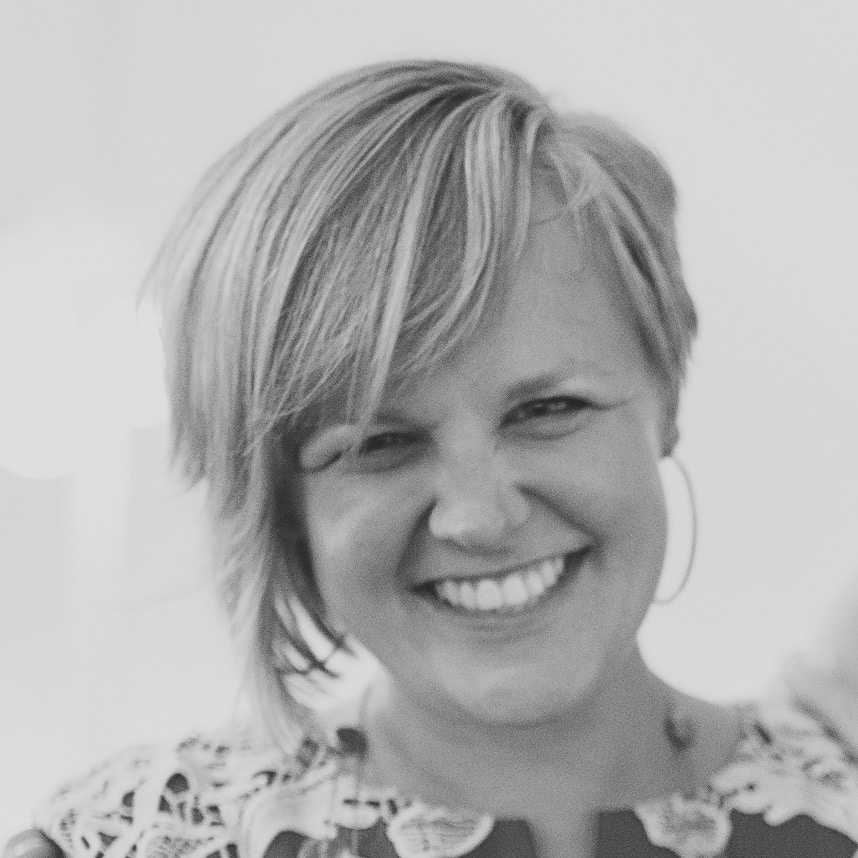“Do not forget to show hospitality to strangers, for by so doing some people have shown hospitality to angels without knowing it.”
—Hebrews 13:2
One of my biggest spiritual hang-ups is my self-sufficiency.
I get caught up in the idea that if I just work a little harder, learn a little more, or give a little more, I can solve any problem I or those I care about might have. Hollywood likes to share these stories of individuals overcoming all odds, and sometimes in my advocacy and education for social justice, I fall into the same mental and spiritual pattern. Like the Pharisee flaunting his goodness to God in Luke 18, I can get caught up in checking all the boxes. It’s a self-defeating pattern—I can only give 110% for so long, and feeling self-sufficient keeps me from calling out to God. Self-sufficiency is a lonely place.
Into this self-sufficiency come my refugee-d friends.
My friend Carlos, a refugee claimant, was sent hundreds of dollars’ worth of bills for a hospital stay, back in the days when refugee claimants’ health coverage had been severely restricted. With friends, we came out to the rallies organized by healthcare professionals for the reinstatement of fuller coverage for claimants. We wrote blog posts. We connected him to specialists. We prayed. We lent support to a fundraiser to cover their medical bills. And then we waited. And waited. And waited.
In the end, the government discovered that they had sent Carlos’ medical coverage documents to the wrong mailing address. He had coverage all along. All of Carlos’ stress had been caused by a mere clerical error of the bureaucracy. This was a great ending because he didn’t have to worry at all about future medical stays. The things we did with Carlos were worth doing. All things I would do again. But in this case, they didn’t fix anything for Carlos and his family.
Or there’s my friend Sayid, a refugee claimant who has been in Canada for more than a year and still doesn’t have a date for his hearing. He’s not alone—the average wait time for inland refugee claimants to even see a member of the Immigration and Refugee Board to make their case for refugee status is officially 16 months, though many refugee advocates say that the real wait times are often much longer. Again, we are waiting.
As I walk with Carlos and Sayid, my self-sufficiency doesn’t cut it anymore. I learn that I can’t always fix things. I have privilege to leverage for their good, yes. But nothing has brought me to my knees more than recognizing the way I am caught up in a web of social relationships, both just and unjust, and that my complicity in those that are unjust cannot be discharged with one letter, one article, one program, one rally. Walking with my refugee-d friends teaches me, over and over again, that we depend together on that other Visitor who “became flesh and blood, and moved into the neighborhood (John 1:14, The Message).
This is a deeply biblical theme: the stranger holds a blessing. Matthew 25 even suggests that Christ himself can be hidden in those who are “strangers.”
I would never wish these difficulties on Carlos and Sayid. That’s not what I’m suggesting here. And yet, in the guise of those considered “strangers,” Christ has taught me a lesson about depending on him. Christ is freeing me from the prison of privileged self-sufficiency and self-righteousness, through my refugee-d friends.
We are called to welcome the stranger, because we need them.
I need them, in a deep and sometimes mysterious way. This subversive biblical teaching, along with the call to welcome because we have been welcomed, breaks down the charity mindset and the delusion of self-sufficiency.
I can help my refugee-d friends in some good ways, yes. The rallies, letters, advocacy, visits, and the like are mustard seeds of faith entrusted to a faithful God.
But I’m not going to save anyone. Jesus is redeeming the whole world, not me. There is the freedom of grace and dependence beyond this prison of self-sufficiency! That’s good news.
This reflection was sparked by this sermon preached by Mary Jo Leddy.
Photo Credit: Flickr/United Nations Photo




